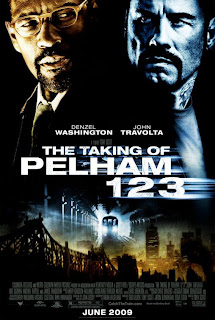
Can love truly change a person?
Romance movies, in general, and “The Proposal,” in particular, beg the question.
(Before we go any further, I’d like to suggest that you listen to Tracy Chapman’s song “Change” as you read—or at least when you finish reading.)
In “The Proposal,” Sandra Bullock, plays high-powered book editor Margaret Tate, who is facing deportation back to Canada. The quick-thinking exec declares that she's actually engaged to her unsuspecting put-upon assistant, Andrew Paxton (played by Ryan Reynolds), who she's tormented for years.
He agrees to participate in the charade, but with a few conditions of his own. The unlikely couple heads to Alaska to meet his quirky family, and the always-in-control city girl finds herself in one comedic fish-out-of-water situation after another. With an impromptu wedding in the works and an immigration official on their heels, Margaret and Andrew reluctantly vow to stick to the plan despite the precarious consequences.
Sandra Bullock is a beautiful, charming, funny actress who has seldom found (or chosen) material equal to her abilities—and “The Proposal” is no different.
The movie’s not bad as romantic comedies go, but it’s not great, doesn’t take advantage of many opportunities and situations, lacks chemistry, and never really gets going before it’s over—though Betty White is a bright spot (as usual).
The premise of the “The Proposal” is that Andrew’s and his family’s love for Margaret (and her love for him and them) can change her.
It’s a nice notion—one I happen to subscribe to, but not in a heady weekend whirlwind wedding way.
Romances claim that finding the right person and “falling” in love is life changing. They are often trite, cliché-ridden, and involve far more attraction and infatuation than actual love, but beneath their shallow surface and behind their enduring popularity is the notion that love changes things—and might just change everything.
Does love change a person? Does anything else?
Love changes us when we let it, when we open ourselves up to it, remove any blockages in our lives so that it might flow to and then through us.
I’m convinced love changes us—that nothing determines the people we are more than love or its absence. Not the “falling in love” of romances, which is, in part, the euphoria of illusion, but the unconditional love that comes from God—love as a choice, love as an experience, love as a lifestyle, love as a philosophy, love as a religion, love as compassion (feeling what others feel) that motivates us to extend ourselves on the behalf of others, love that, unlike “romantic love” which is all about attraction and desire (largely self-centered stuff), is not based on the beloved (his or her qualities , attractiveness, or worthiness).
There’s a lot of wisdom in separating love from like, from desire and attraction and infatuation. There are so many things we call love that just aren’t.
Love as illusion, as infatuation, as the projection of perfection onto a person can change us temporarily, but love as a choice made every moment, as an end of illusions, as an act of generosity, as accepting someone the way they are, has the greatest chance of changing us no less than those we love.
Love as a feeling fades (waxes and wanes, ebbs and flows). Love as a lifestyle, as a worldview, as a religion, as a commitment despite how we feel, grows, expands, engulfs.
In the simple and profound lyrics of Clint Black:
Love is certain, love is kind
Love is yours and love is mine
But it isn't something that we find
It's something that we do.
We're on a road that has no end
And each day we begin again
Love's not just something that we're in
It's something that we do.
There's no request too big or small
We give ourselves, we give our all
Love isn't someplace that we fall
It's something that we do.
Clint is right. Love isn’t a condition, it’s an action. Love isn’t something that happens to us, it’s a lifestyle choice.
You could do worse for romantic comedy movie time than spending it at “The Proposal,” but it’s the film’s implicit question that we should spend our time reflecting on whether we see the movie or not.
I propose we commit ourselves to love—to embracing, accepting, and giving, to unconditionally extending ourselves on the behalf of others—not just those we’re attracted to, or who are like us, but also, or especially, to those who don’t love us back, to even our enemies, and see what happens. True change will occur—in us if no one else.

















